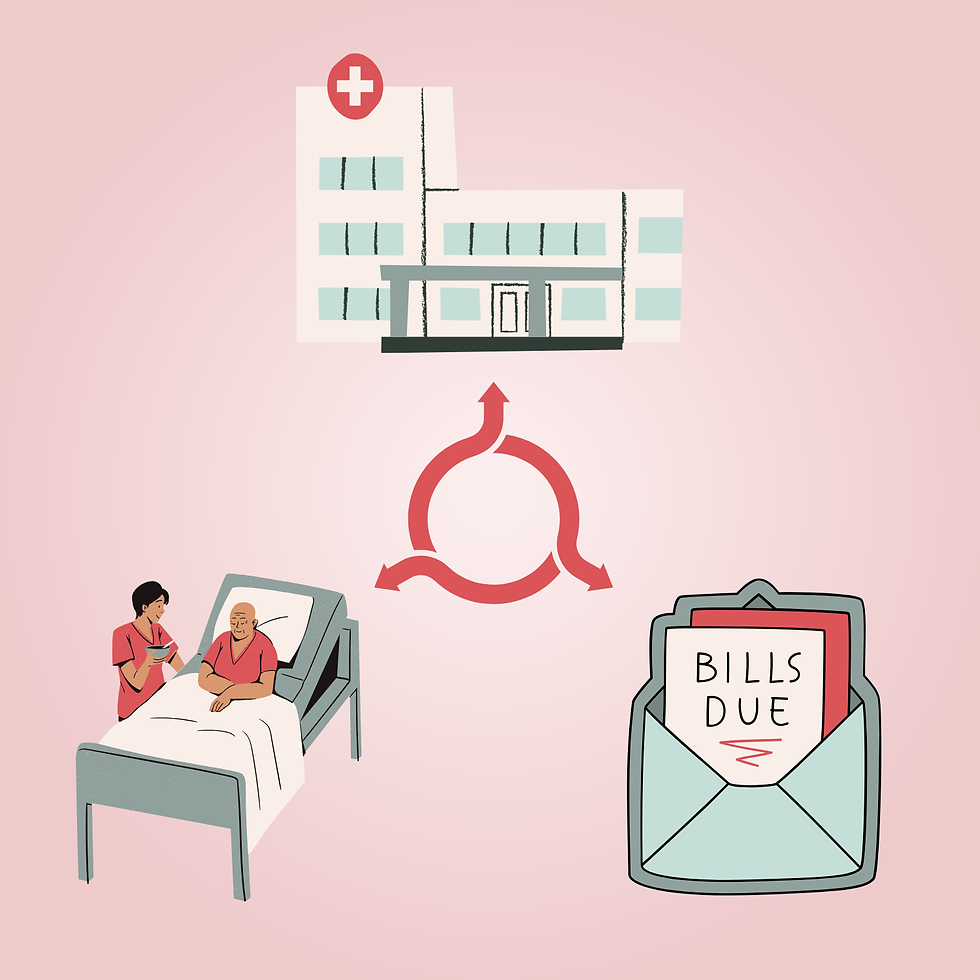Ethics of Precision Medicine and the Disabled Community
- Annie Vila
- Feb 27, 2022
- 3 min read
Precision medicine has been a promising strategy to help eliminate disparities in healthcare involving race, ethnicity and gender. By providing patients with custom healthcare that focuses on their genetics, lifestyle and environment, treatments can become more effective by taking into account individual differences in health.
Despite the fact that there has been an ongoing initiative to assure proper treatment of racial and ethnic groups when dealing with precision medicine, there has been a noticeable lack of research regarding one minority group in particular: persons with disabilities. Considering that 26% of adults in the US have a disability [1], it is imperative to conduct sufficient research with persons with disabilities and include them in the ethical debate of precision medicine. There are several justifications for why people with disabilities need to be included in these conversations. Firstly, there are several disabilities with “genetic underpinnings” in which precision medicine can be employed so that the patient is receiving the best personalized care [2]. Additionally, people with disabilities are more susceptible to certain diseases than others; for instance, the risks of breast and lung cancers among schizophrenia patients are much higher compared to the general population [3].

Despite these justifications, there are hurdles when attempting to include the disabled community in precision medicine. First and foremost, there could be challenges in obtaining the patient’s informed consent, especially when dealing with people who have an intellectual disability. Additionally, researchers often do not know how to design certain studies that contain formats accessible to disabled persons [4]. There are also social determinants that create barriers to healthcare. Lastly, patients with disabilities may be less inclined to attend research meetings that do not lead to immediate results, as they are already more likely to miss pre-existing appointments, compared to non-disabled patients, due to cost and transportation issues [5]. The increased lack of internet access among the disabled community also poses a problem, as this could be a useful outlet to conduct the necessary research [6].
Inclusion of persons with disabilities is a necessity in precision medicine. The solution to this problem is still unclear, as the barriers laid out need to be solved in order to assure the safe inclusion of disabled people in this community. Until these issues are met, it can be argued that it is safer for the disabled community to refrain from engaging in research. Prematurely doing so could lead to even larger health disparities involving this group. Therefore, we must work together and find a way to solve these problems in order to begin their inclusion in precision medicine research.
Edited by: Min Ju Lee
Graphic Designed by: Sibani Ram
References:
[1] CDC. "Disability Impacts All of Us." Centers for Disease Control and Prevention, 17 June 2021, www.cdc.gov/ncbddd/disabilityandhealth/infographic-disability-impacts-all.html. Accessed 27 Feb. 2022.
[2] Sabatello, M. Precision medicine, health disparities, and ethics: the case for disability inclusion. Genet Med 20, 397–399 (2018). https://doi.org/10.1038/gim.2017.120
[3] Wisdom JP, McGee MG, Horner-Johnson W, Michael YL, Adams E, Berlin M . Health disparities between women with and without disabilities: a review of the research. Soc Work Public Health2010;25:368–386.
[4] Williams AS, Moore SM . Universal design of research: inclusion of persons with disabilities in mainstream biomedical studies. Sci Transl Med2011;3:82cm12.
[5] Krahn GL, Walker DK, Correa-De-Araujo R . Persons with disabilities as an unrecognized health disparity population. Am J Public Health2015;105(suppl 2):S198–206.
[6] Krahn GL, Walker DK, Correa-De-Araujo R . Persons with disabilities as an unrecognized health disparity population. Am J Public Health2015;105(suppl 2):S198–206.



Comments